So, German Shepherds Temperament: Are They Good With Kids?
When considering adding a new four-legged member to your family, German shepherd good pros and cons, understanding their dog breed and German shepherd temperament is crucial, especially if you have children. German Shepherds are renowned for their intelligence, are german shepherds good with other dogs, loyalty, and versatility, making them not only one of the most popular breeds but also highly debated when it comes to their temperament. Questions like “Are shepherds good with kids?” and “Are German Shepherds good family dogs?” often arise.
The key to fostering a positive relationship between your children and a German Shepherd lies in understanding the intricacies of the breed’s temperament, which can vary from the protective and loving nature of a well-socialized dog to the more cautious and reserved demeanor of white German Shepherds.
This article aims to delve deep into the German Shepherd, and the pros and cons of German Shepherd puppy, exploring whether these dogs are naturally good with kids and what factors contribute to making them excellent family dogs. You will learn about the importance of training, German shepherds are aggressive and socialization ensures your older German shepherd becomes a well-behaved family member. Additionally, we’ll discuss the breed’s exercise and mental stimulation needs to help mitigate any potential risks.
Understanding how to teach kids to respect the dog, and vice versa is also crucial for a harmonious household. Through real-life stories of German Shepherds with families, and how German shepherds get along with other dogs, you’ll gain insights into the tangible benefits and challenges of having a German Shepherd as a part of your family, providing a comprehensive overview of what to expect when considering a German Shepherd for your home.
Understanding the German Shepherd’s Temperament 
Loyal, confident, courageous, and steady, the German Shepherd is truly a dog lover’s delight. Standing as high as 26 inches at the shoulder, this breed presents a picture of smooth, graceful curves rather than angles. Known for its free-and-easy trot, the German Shepherd can accelerate to great speeds when needed.
The temperament of the Shepherd is marked by intelligence, loyalty, and energy, making it one of the most versatile breeds globally. Their smart and eager-to-please nature, coupled with attentiveness and trainability, has made them excel in various roles. Whether it’s as a family pet, guard dog, working dog, or even a guide dog, the German Shepherd’s character shines through. Experts point out that the breed’s defining attributes are its loyalty, courage, and confidence. They are also known for their ability to learn commands for many tasks and their willingness to put their life on the line in defense of their loved ones.
However, it’s important to note that while Shepherds can be gentle family pets and steadfast guardians, they possess a ‘certain aloofness that does not lend itself to immediate and indiscriminate friendships’. This characteristic of aloofness means that they do not make friends indiscriminately or immediately, which is an important trait for potential owners to consider.
Originating in Germany in the late 1800s by crossing various herding breeds, the German Shepherd was quickly developed through stringent selection. They were introduced in the United States by soldiers returning from World War I and became widely recognized, partly due to famous movie stars like Strongheart and Rin Tin Tin. Their courage, loyalty, and guarding instincts make them excellent guard dogs, police dogs, military dogs, guide dogs for the blind, and search and rescue working dogs. For many families, the German Shepherd is also a treasured family pet, embodying a blend of utility and loyalty that is hard to match.
Are German Shepherds Naturally Good with Kids? 
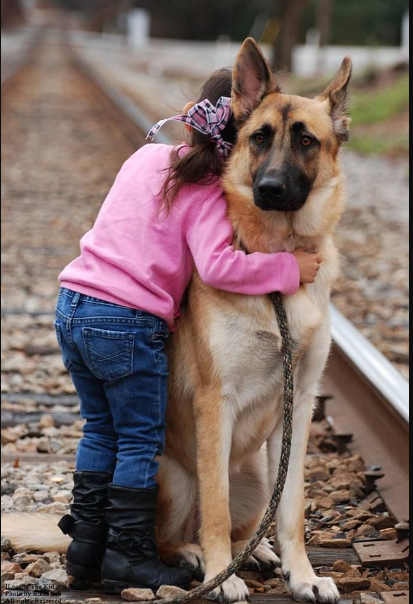
German Shepherds are renowned for their protective nature and loyalty, particularly towards children within their family. Many owners report that their German Shepherd dog have formed strong, are a German shepherd good family dog, have protective bonds with their children, displaying behaviors that ensure the child’s safety and comfort. For instance, these dogs have been known to stand still to support a child trying to stand up or bring their toys to comfort a crying child. This innate protective instinct makes them excellent companions for families with children, german shepherds are good dogs.
However, the relationship between a German shepherd good with kids can depend significantly on early socialization and training. It’s crucial to teach both the dog and the child the right way to interact with each other. Puppy energy, in particular, needs to learn how to moderate their strength while playing with children to prevent accidental harm. Similarly, children should be taught how to approach and treat the dog with respect, avoiding rough play such as pulling on the dog’s ears or tail.
German Shepherds are not only protective but are also known for their gentle disposition towards babies and young kids. They tend to be curious and gentle around new babies, often showing a keen interest in their new members. This behavior is attributed to their strong protective instincts, possibly a trait inherited from their ancestors. Owners have observed that German Shepherds can be particularly attentive to babies, displaying a gentle and loving nature.
While these traits highlight the potential for German Shepherds to be good with children, it is essential to never leave dogs and other dog breeds unsupervised with young children. Even the gentlest dog may react unexpectedly if accidentally hurt or threatened. Continuous supervision and proper introduction of the dog to the child can foster a safe and loving relationship.
Training and Socialization: Key to a Well-behaved German Shepherd 
Early Socialization and Proper Socialization
Socialization is crucial for your German Shepherd’s development, exposing them to a variety of people, animals, and environments from an early age. This process helps them become more confident and comfortable in different situations, which is essential for preventing behavioral issues later on. It’s important to introduce your German Shepherd to different people and settings gradually, ensuring positive interactions and reducing chances of fear or aggression. During the critical socialization period, typically between 3-12 weeks of age, take the opportunity to expose your German shepherd puppy to friendly strangers and various environments. This early exposure is key to developing a well-adjusted adult dog.
Basic Obedience Training
Starting basic obedience training early is vital. Teach commands like “sit,” “stay,” “come,” and “heel” using positive reinforcement techniques. This not only helps in managing your German Shepherd’s behavior but also strengthens your bond. Consistent training sessions are crucial; ensure each command is followed through with immediate rewards to avoid confusion. Training should be a fun and rewarding experience for both you and your dog, using treats or praises to encourage and reinforce good behavior.
Advanced Training Tips
As your German Shepherd masters basic commands, consider advancing their training to include more complex tasks. Advanced obedience training can refine their skills and enhance responsiveness. Activities such as agility, tracking, or protection work provide mental stimulation and help channel their instincts positively. It’s important to build on the basics first, ensuring a solid foundation before introducing new commands. Engage in training that challenges both their mind and body, keeping them engaged and eager to learn.
Exercise and Mental Stimulation Needs 
Physical Exercise
German Shepherds are highly active and intelligent dogs that require a significant amount of exercise to maintain their health and happiness. Experts recommend at least 2 hours of physical activity each day for these energetic dogs. Activities like running, agility training, and interactive games not only fulfill their physical requirements but also provide mental stimulation. For puppies, it’s crucial to moderate their exercise to prevent joint issues, adhering to about 5 minutes of formal exercise per month of age. As German Shepherds age, their need for intense physical activity may decrease, but maintaining regular exercise is still essential for their well-being.
Mental Stimulation Activities
Mental stimulation is equally important for German Shepherds. Engaging in brain games such as puzzles, hide-and-seek, or tracking scents helps keep their minds sharp and active. These activities utilize all five senses, encouraging creativity and problem-solving skills. Regular mental challenges can improve their problem-solving abilities, increase intelligence, and make them more alert and aware of their surroundings. Incorporating toy-based enrichment like puzzle toys, and scenting games like finding hidden treats, provides essential mental stimulation and can prevent boredom and destructive behaviors For optimal mental health, adult German Shepherds should receive 20-40 minutes of mental stimulation daily, while puppies need about 5-15 minutes.
Potential Risks and How to Mitigate Them 
Recognizing Warning Signs
Are German shepherds dangerous?
When interacting with German Shepherds, it’s crucial to be aware of certain behaviors that may indicate aggression or potential danger. If you notice your German Shepherd exhibiting stiff body language, this can be a sign that they are feeling threatened or agitated. Similarly, raised hackles, a physical response to stimuli, can signal arousal or aggression. Be attentive to audible signs of aggression such as growling or snarling, which indicate that a German Shepherd may be feeling hostile or territorial.
Excessive barking, especially in response to certain triggers or strangers, can also be a sign of aggression or defensiveness. If your German Shepherd shows its teeth in a snarling or threatening manner, consider this a clear warning sign of aggression. Additionally, behaviors like lunging towards people or more animals, or making snapping motions with its mouth, are overt signs of aggression that should not be ignored.
If a German Shepherd has a history of aggressive behavior, either towards humans or other animals, it’s important to proceed with caution and implement appropriate safety measures.
Why are German shepherds so aggressive? Overprotectiveness, while often seen as a sign of loyalty, can sometimes lead to aggressive behavior, especially toward perceived threats.
Proper Supervision
To mitigate potential risks, proper supervision is essential. Always supervise interactions between your German shepherds good dog and children, as well as with other pets. This oversight helps prevent any unexpected aggressive reactions, which can occur even with generally gentle dogs.
Regular vet check-ups and a balanced diet are fundamental to maintaining your German Shepherd’s health, which can influence their behavior. Monitor for any signs of pain or discomfort, such as limping, whining, decreased activity, changes in appetite, or unusual aggression, and consult your veterinarian if these signs appear.
Implementing structured socialization and training from an early age can significantly reduce the likelihood of aggressive behaviors. Engage your German Shepherd in puppy socialization classes and continue training as they grow. This helps them become relaxed and confident in various environments, reducing their need to react aggressively.
Remember, never tolerate aggression. Work consistently with your German shepherd dog on basic manners and expose them to diverse people, environments, and situations. This ongoing training, ideally blended with positive reinforcement, helps foster a non-reactive and well-mannered dog.
Teaching Kids to Respect the Dog 
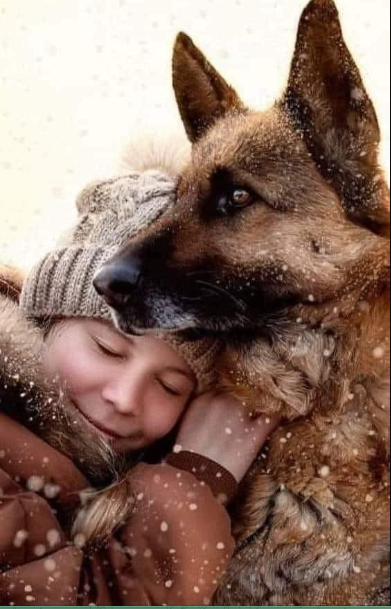
Dos and Don’ts for Kids
Teaching children how to interact with dogs safely and respectfully is crucial in preventing accidents and fostering a positive relationship between them. Here are some essential guidelines:
- Always Be Gentle: Teach your child young age to pet dogs gently, using calm strokes rather than rough handling. Emphasize that dogs are not toys and should not be squeezed, hit, or picked up inappropriately.
- The Right Approach: Show your child how to approach a dog properly. They should first ask the owner for permission, approach the dog slowly, and allow the dog to sniff their hand before petting it. This helps prevent startling the dog and builds trust.
- Respect the Dog’s Space: Ensure your child understands that they should never disturb a dog while it’s eating, sleeping, or in its safe space. Teach them to recognize when a dog wants to be left alone and to respect those signals.
- Supervise Interactions: Always be present during interactions between your child and a dog. This supervision helps you intervene if necessary, preventing potential mishaps like a child falling on a dog or startling it while it’s resting.
- Educate About Body Language: Help your child understand basic German shepherd dog body language. Teach them that certain behaviors, like a dog turning away or tucking its tail, mean that the dog is uncomfortable or scared.
Signs of Aggression
Recognizing the signs of aggression in dogs is vital for safety. Here are some indicators that a dog might feel threatened or aggressive:
- Stiff Body Language: If a dog’s body becomes tense and stiff, it may feel threatened. This body language often precedes aggression.
- Raised Hackles: Raised hackles, or the hair along a dog’s back standing up, can indicate that a dog is aroused or feeling aggressive.
- Growling or Snarling: Audible warnings like growling or snarling are clear signs that a dog is feeling hostile or territorial.
- Excessive Barking: Frequent and intense barking, especially at strangers or in response to specific triggers, can signal defensiveness or aggression.
- Showing Teeth: A dog showing its teeth in a snarling manner is a direct warning sign of potential aggression.
- Lunging or Snapping: Actions such as lunging towards people or different animals, or snapping, are aggressive behaviors that should not be ignored.
- Understanding Triggers: Pay attention to what triggers your dog’s aggressive responses, such as certain situations or people, and manage these interactions carefully
By educating your child on these dos and don’ts, and teaching them to recognize signs of aggression, you can help ensure their interactions with dogs are safe and positive. Always remember that proper supervision and understanding are key to preventing accidents and building a respectful relationship between your child and any dog.
The Benefits of Having a German Shepherd with Kids 

Protective Nature
German Shepherds are renowned for their protective instincts, particularly towards children within their family unit. They are known to form strong, protective bonds with kids, often becoming quite attached and acting as a vigilant guardian. This breed’s protective nature is underlined by their history and breeding as guard dogs, making them excellent family protectors. They are highly loyal and often referred to as ‘velcro dogs’ due to their tendency to stay close to their family members, especially children. This inherent protective trait ensures that your children are not only safe but also have a constant, watchful companion by their side.
Loyal Companionship
Are German Shepherds loyal?
The loyalty of German Shepherds is unmatched, making them not just pets but loyal family members. Their devotion to family—especially the children—is evident as they display affection and loyalty that strengthens the bond they share with their human counterparts. This breed’s intelligence and protective nature combined with their loyalty, make them more than just a pet; they are a companion who partakes in family life, providing emotional support and companionship. They are known to be gentle and patient with children, often forming an unbreakable bond with their young human friends.
Mutual Exercise
Having a German Shepherd can promote a healthy and active lifestyle for both the dog and your children. These dogs are energetic and playful, which makes them excellent companions for active children. Engaging in mutual activities such as playing fetch, running, or participating in agility training not only helps in fulfilling the dog’s exercise needs but also encourages children to lead an active lifestyle. This shared activity time not only benefits the physical health of both the dog and the child but also strengthens their emotional bond, making the German Shepherd an integral part of family activities and contributing to a lively household atmosphere.
Real-life Stories of German Shepherds with Families  Real-life Stories of German Shepherds with Families
Real-life Stories of German Shepherds with Families
In Mendon, Massachusetts, a heroic German Shepherd demonstrated remarkable bravery and quick thinking during a critical moment. This dog managed to pull a nine-month-old baby from her pen and safely took her outdoors, alerting the family to a fire that had broken out in their home before it was too late.
Another touching story comes from Wilton, Connecticut, where a ten-month-old Shepherd proved to be a lifesaver. In the dead of night, this vigilant dog raced from bedroom to bedroom, barking loudly to wake up and save the lives of ten people as their house caught fire. Tragically, the brave dog perished in the fire after heroically running back into the blaze to try and save the family cat, ultimately found with the cat between his paws.
In Cranston, Rhode Island, a pets quick action and keen sense of smell saved an elderly couple from a potentially disastrous fire. Unable to wake the couple through barking or scratching, the dog cleverly pushed open a back door and fetched a neighbor. After alerting the neighbor, the dog led him back to the couple’s home, where the neighbor was able to assist the couple to safety, saving most of the house from the encroaching flames.
From the historical archives of June 1964 in East Germany, a story of a three-year-old guard dog named Lux emerges. Lux displayed extraordinary courage by attacking Communist guards to protect his 17-year-old owner during their escape to West Germany. Lux’s actions prevented the guards from firing, allowing both him and his owner to cross the border safely without injury.
In a lighter yet equally impressive tale from Helsinki, Finland, during the last war when gas rationing was in effect, a active dogs ingeniously helped his owner bypass long taxi queues. The dog would take a note from his owner and run to the front of the queue, jump into a taxi, and hand the note to the driver, who would then pick up his owner. This clever arrangement saved the owner countless hours of waiting.
Each of these stories not only highlights the incredible intelligence and bravery of German Shepherds but also underscores their deep loyalty and protective instincts, making them exceptional family German shepherds good dogs.
Conclusion 
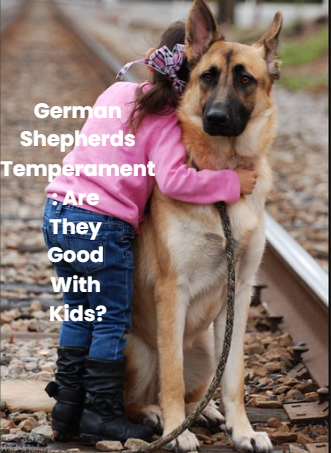
Through exploring the multifaceted temperament of German Shepherds, proper training, and German shepherd behavior stages, it becomes evident that German shepherds friendly their protective nature, intelligence, and loyalty make them more than capable of being wonderful family members, especially in homes with children. The critical elements of training, socialization, and mutual respect between the dog and children underscore the potential for a harmonious and safe relationship. These dogs not only bring joy and companionship but also a sense of security to their families, embodying the epitome of a loyal guardian and a playful friend.
The stories and insights shared highlight the importance of understanding a German Shepherd’s needs and the profound impact they can have on life. From protective instincts to their unparalleled loyalty, German Shepherds prove time and again to be an invaluable addition to a household. Encouraging further research and responsible pet ownership practices can help ensure that this remarkable breed continues to thrive in family environments, bringing happiness and protection to their human counterparts.
FAQs
1. Is it safe to have a German Shepherd around children?
While German Shepherds can be compatible with families, they may not be the best choice for households with small children. Success can vary widely, and it is advisable to consult with a professional dog trainer and a veterinarian to make an informed decision about choosing this breed if you have kids.
2. Do German Shepherds require a lot of care?
Yes, German Shepherds are considered high maintenance. They require regular grooming to handle their shedding and to prevent matting or skin problems. Additionally, they have higher exercise requirements compared to many other breeds. Despite these needs, their ease of training and strong bonding capabilities can make managing their care more straightforward.
3. What are some of the best dog breeds for children?
Some top dog breeds considered ideal for families include Labradors, Poodles, Bernese Mountain Dogs, Beagles, Golden Retrievers, Cavalier King Charles Spaniels, and Staffordshire Bull Terriers. Each of these breeds is known for qualities that make them suitable for living with children.
4. Are German Shepherds challenging to manage for first-time dog owners?
German Shepherds are not typically recommended for novice dog owners due to their high intelligence and need for mental stimulation. They require consistent training and engagement, as they are very motivated by praise and like to have tasks to perform, which can be demanding for someone inexperienced with dogs.
- German Shepherds Temperament: Are They Good With Kids?
- How to Care for Your 8 Week Old German Shepherd Puppy
- What is a German Shepherd dog? Full guide dogs about this dog breed 2024
- How Many Years Does a German Shepherd Live: Unveiling the Lifespan of a Beloved Canine Companion
- How to deshed a German Shepherd: Your step-by-step guide to taming the shedding beast in your German Shepherd

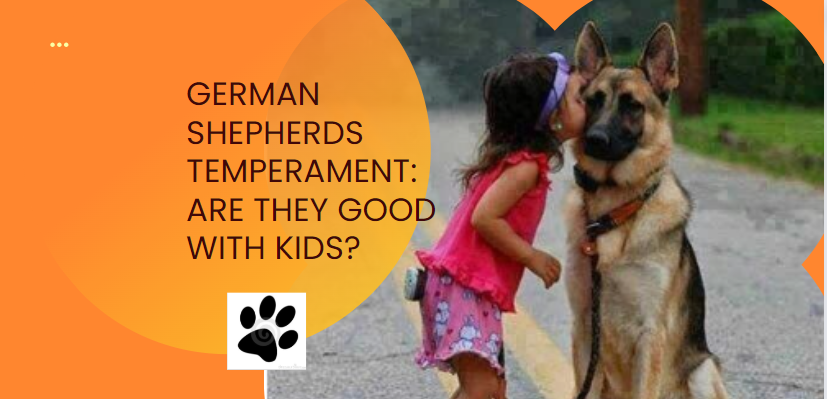
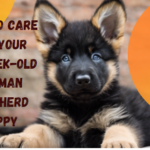
ропрьпьпр